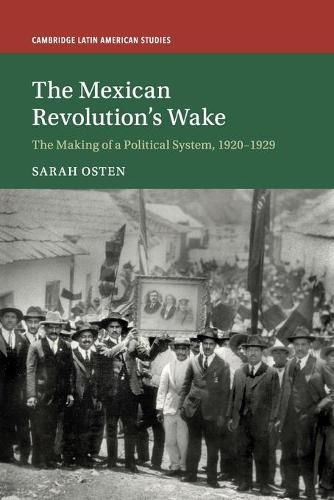Readings Newsletter
Become a Readings Member to make your shopping experience even easier.
Sign in or sign up for free!
You’re not far away from qualifying for FREE standard shipping within Australia
You’ve qualified for FREE standard shipping within Australia
The cart is loading…






Throughout the 1920s Mexico was rocked by attempted coups, assassinations, and popular revolts. Yet by the mid-1930s, the country boasted one of the most stable and durable political systems in Latin America. In the first book on party formation conducted at the regional level after the Mexican Revolution, Sarah Osten examines processes of political and social change that eventually gave rise to the Institutional Revolutionary Party (PRI), which dominated Mexico’s politics for the rest of the twentieth century. In analyzing the history of socialist parties in the southeastern states of Campeche, Chiapas, Tabasco, and Yucatan, Osten demonstrates that these ‘laboratories of revolution’ constituted a highly influential testing ground for new political traditions and institutional structures. The Mexican Revolution’s Wake shows how the southeastern socialists provided a blueprint for a new kind of party that struck calculated balances between the objectives of elite and popular forces, and between centralized authority and local autonomy.
$9.00 standard shipping within Australia
FREE standard shipping within Australia for orders over $100.00
Express & International shipping calculated at checkout
Throughout the 1920s Mexico was rocked by attempted coups, assassinations, and popular revolts. Yet by the mid-1930s, the country boasted one of the most stable and durable political systems in Latin America. In the first book on party formation conducted at the regional level after the Mexican Revolution, Sarah Osten examines processes of political and social change that eventually gave rise to the Institutional Revolutionary Party (PRI), which dominated Mexico’s politics for the rest of the twentieth century. In analyzing the history of socialist parties in the southeastern states of Campeche, Chiapas, Tabasco, and Yucatan, Osten demonstrates that these ‘laboratories of revolution’ constituted a highly influential testing ground for new political traditions and institutional structures. The Mexican Revolution’s Wake shows how the southeastern socialists provided a blueprint for a new kind of party that struck calculated balances between the objectives of elite and popular forces, and between centralized authority and local autonomy.